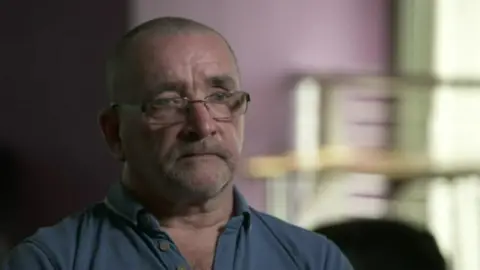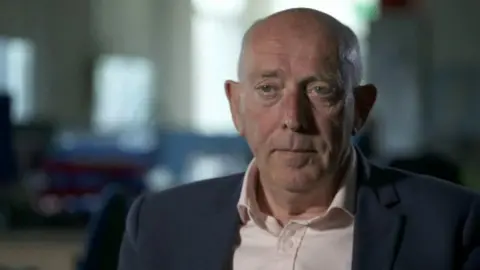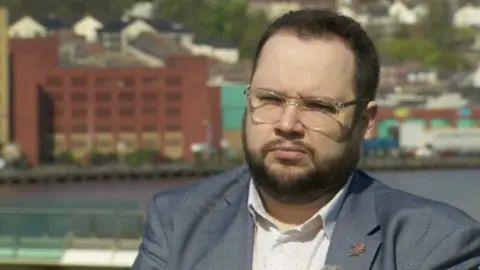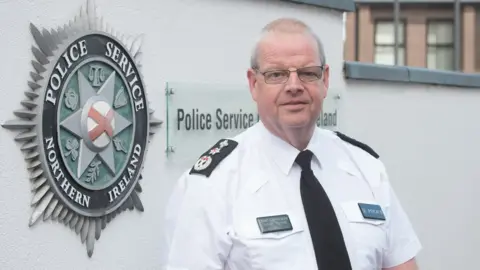PSNI recruitment 'a challenge' in working class areas of Northern Ireland
 Pacemaker
PacemakerIsaac Andrews is rarely off his phone.
As a community worker in the unionist and loyalist Shankill area of Belfast, he responds to calls from local residents who are often in need of help or advice.
His role also involves liaising with the police on a range of community policing matters.
Yet, he doesn't know anyone who has joined the Police Service of Northern Ireland (PSNI).

"I'm sadly not aware of one person that I could tell you that I know from a working class background recently has joined the PSNI," he said.
"Most of the PSNI officers who I work with are from the suburbs, somewhere else in Belfast, but they're not working class."
Police reform via the Patten Commission Report was a key part of the peace process.
However, two decades after the Royal Ulster Constabulary (RUC) was superseded by the PSNI, recruitment from some communities remains a challenge for policing in Northern Ireland.

"A lot of change happened in policing, like badges, uniforms, symbols, human-rights training," said Peter Sheridan, a former PSNI assistant chief constable.
"Unfortunately I think what happened is that all of those, if you like, shiny new police officers and new ideas and the new recruits went out into a society that largely hadn't changed, those deep-rooted divisions were there so that makes policing that environment still very difficult - and I think then that started to impact again more so in recent times around the politicisation of policing."
Police transformation was intended to build support for policing from all communities but attracting Catholics remains an issue for the PSNI.
The ongoing dissident republican threat to police officers, as witnessed in recent weeks, is seen as a major factor in Catholic under-representation.

Emmet Doyle is the Aontú councillor for Ballyarnett on Derry City and Strabane District Council.
"I'm 34 and I don't know anyone, certainly from the area where I am, who has joined the PSNI," he said.
"There is a trade-off I suppose that many people from a nationalist/republican community would see when you join the police.
"It's almost accepted that you won't be part of the community anymore and that's not necessarily something I agree with but that's the reality of it."
There has been a drop-off in applications from the Catholic community in recent years - the 2018 recruitment campaign had around 500 fewer applicants than the year before.
Add to that, the problem in trying to attract working-class Protestants, women, ethnic minorities and members of the LGBT community.
 Pacemaker
Pacemaker"The police service should reflect the society it comes from," said Peter Sheridan.
"We wanted young people from the Shankill Road, from Creggan, from the Bogside - that's what moderates policing when you have people from those communities - and if that disconnect is happening then it's not just a matter for the police and the police recruitment, it's a matter for all of society."
Chief Constable Simon Byrne said that in terms of recruitment, there is "more to do".
"I think we have tried certainly in my time, in the last recruitment round which has been the first under my tenure, we did reach out into working class loyalist and Catholic communities to try and attract people from there," he said.
"I think there's a recognition that there's more space to actually recruit people from all sorts of different backgrounds and it's a key commitment that I want to see fulfilled."
Spotlight will be broadcast on BBC One Northern Ireland on Tuesday, 18 May at 22:45 BST.
